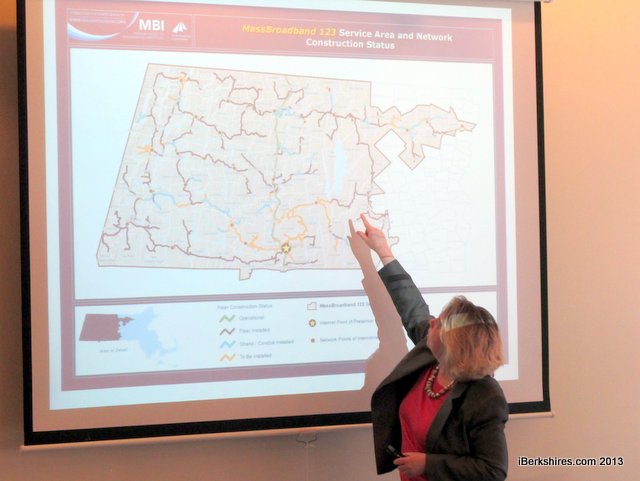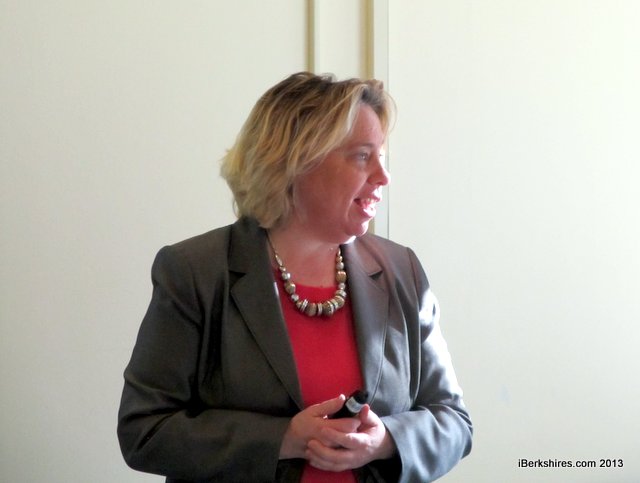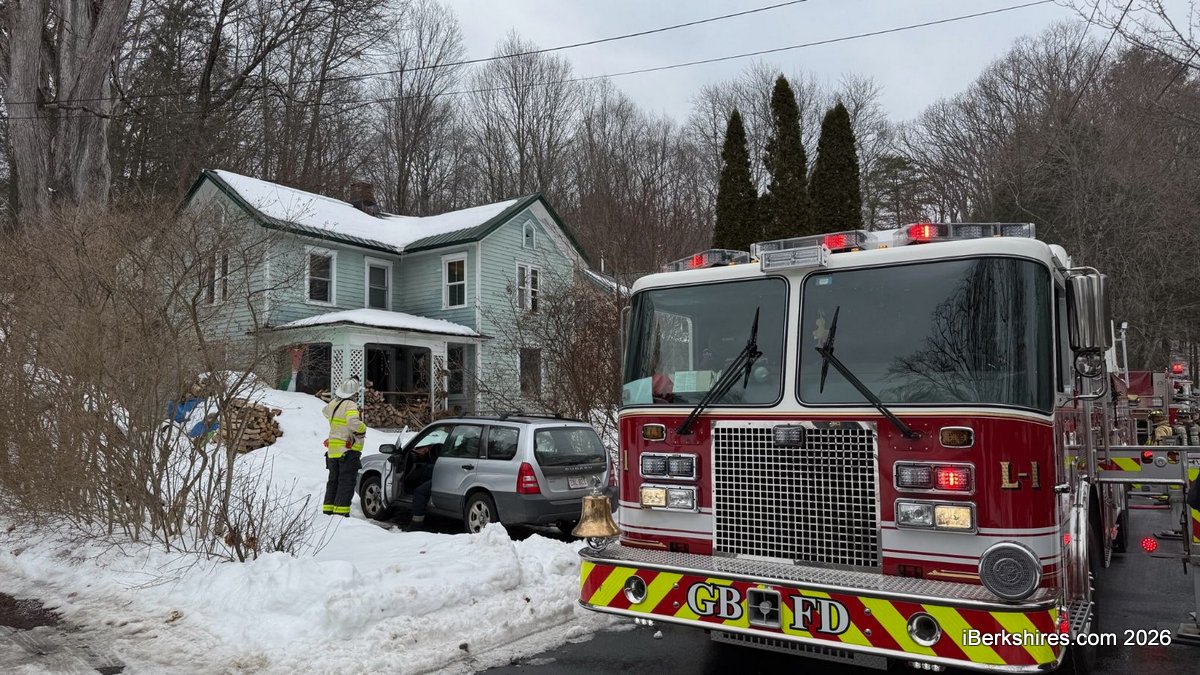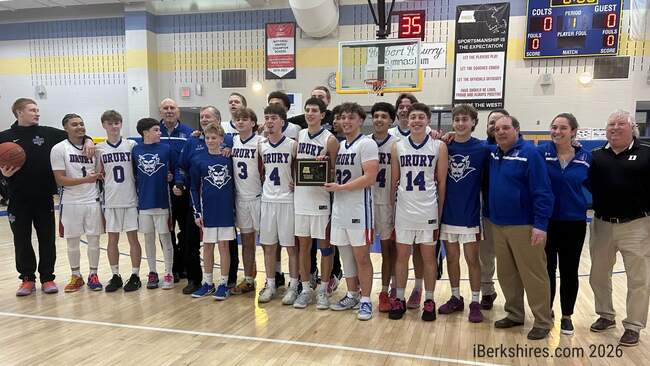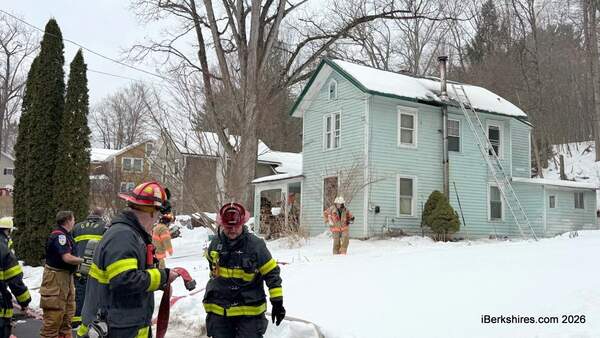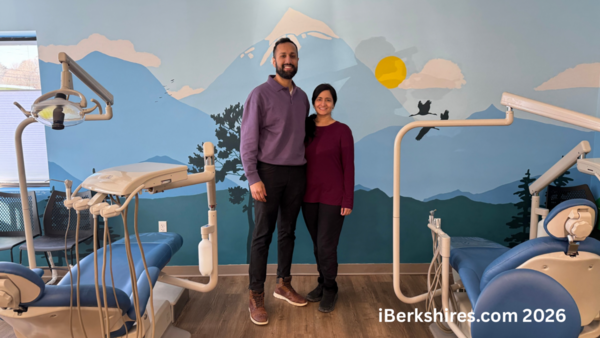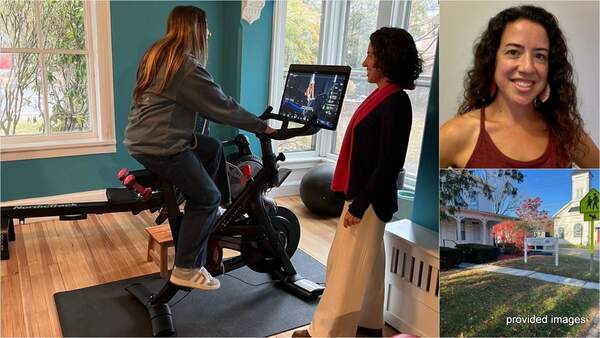Mass Broadband Updates Pittsfield Economic Group On Progress
|
Judy Dumont, executive director of MBI, discussed the progress in the effort to bring broadband to all corners of the state. |
PITTSFIELD, Mass. — In the last 10-15 years, the Internet has created 1.2 million jobs so bringing broadband to all parts of the county will be a "game changer," Massachusetts Broadband Institute Executive Director Judy Dumont told the Pittsfield Economic Revitalization Corp.
PERC, a volunteer group of county businesses leaders working toward economic development, invited Dumont to be the keynote speaker at its annual meeting on Friday.
Dumont detailed the process of using some $85 million in federal and state funds to further bring fiber optic connections to every corner of the state.
"Broadband really is the fourth utility," Dumont said, adding that high-speed Internet is not a luxury but rather a necessity.
MBI was formed in 2008 with the passage of Gov. Deval Patrick's broadband bill, which allocated $40 million toward leveraging private funds to expand access.
However, that bill was signed the same week the stock market crashed and the markets "froze," Dumont said. All was not lost, however: "It put us in a very good place for stimulus [funds]."
The group planned a small project to build infrastructure and the federal government stepped in with $45 million more in American Recovery and Reinvestment Act funding. The group then planned the "middle mile," laying the backbone of the network, connecting community anchors such as city halls, libraries and public safety facilities.
"We are building a 1,200-mile network across Massachusetts," Dumont said, adding that is 25 times larger than originally planned. "One million residents will see the benefits."
The group hired Axia NGNetworks USA to install and operate the line and earlier this month, "lit up" the first section in Berkshire County with a ceremony in Otis. That installation is slightly behind schedule because of weather, particularly because Hurricane Sandy forced line workers to leave to help in New York and New Jersey.
"It's an open network so any service provider can buy service on it and then sell it to businesses and homes," Dumont said.
That is unique because most the country's utility lines were built by private developers and kept access to themselves. This model follows what has been done in European countries, she said.
|
Dumont said businesses need high speed internet in order to compete in the current and future marketplace. |
Pittsfield, which is already well served anyway, is likely to be one of the last to be "lit up" because the majority of the utility lines are underground, adding an additional hitch to the process, she said.
So far, 31 providers have signed to provide service with that line, so costs should be kept down because of the competitive process, she said.
The final step will again be focused on having private providers connect from the main trunks to individual homes. Patrick has proposed a bill with another $40 million to help that process along. Dumont calls those funds a "down payment."
While the infrastructure piece is the largest, Dumont said MBI has also created a website for veterans to find their benefits, has an online computer literacy class and is giving grants to economic development agencies across the state for small businesses and nonprofit agencies.
The result of the Internet project will greatly help economic development, Dumont said. Some 4 million U.S. companies have websites with 2 million of those having less than five employees. Median revenues are up by $300,000 in companies with high-speed access over those that don't have it. Two-thirds of all home occupations use the Internet and 60 percent sell their goods or advertise online. A total of 1.5 million small businesses have employees who work from home.
Additionally, there is a skills gap in employment in the state with more technical jobs than qualified employees. Broadband connection will allow schools to better prepare their students for the needed jobs, Dumont said. High-speed access will "elevate" the employee pool.
High speed allows companies to increase their markets, effectively communicate among office locations, create efficient customer service, reduce operational and communication costs and provide more opportunities for businesses to grow, she said.
"This is very exciting for all of us and we should promote this as much as we can," said PERC President Jay Anderson. "This is a game changer."
Anderson said the Internet speed in the Berkshires is below what is available in the rest of the country, so by catching up, the county can offer prospective businesses what they are used to having.
Tags: broadband, Internet, PERC, small business,

